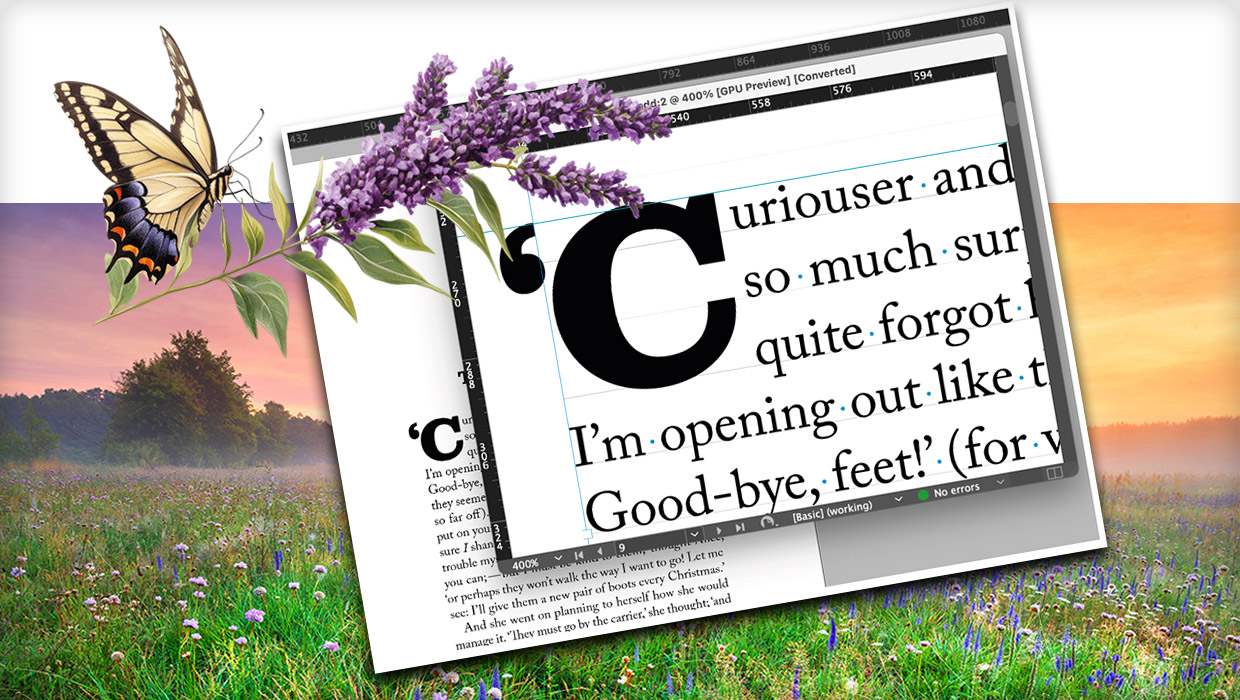Basic and Not-so-Basic Text Selection Shortcuts
Most people understand the basics of selecting text like double and triple click, but there are a surprisingly large number of shortcuts to help you get the perfect text selection.

While these Adobe InDesign text selection shortcuts are probably a refresher for most people, take some time to review them because you might find one that you never knew about. In fact, I never even noticed that you could double-click and drag to select more than a word. Sometimes it is the obvious, little tricks that can make your day. If I missed any shortcuts, please put them in the comments and I will update the article.
Mouse Selections
Select Cursor Position – Single Click
Select Word – Double-Click
Select Line – Triple-Click
Select Paragraph – Quad-Click (4 clicks) This is the preferred method of selecting a paragraph. If you click and drag, you might miss the end of the paragraph.
Select Story – Quin-Click (5 clicks)
Select a Word and More – Double-Click and drag your mouse. This also works with triple/quad clicks.
Add to a Selection – Shift-Click when you have a selection to add to that selection.
Table Selections
Select Table – Opt/Alt+Cmd/Ctrl+A
Select Column – Opt/Alt+Cmd/Ctrl+3
Select Row – Cmd/Ctrl+3
Select Cell – Cmd/Ctrl+/ or ESC
Select Cells Above – Shift+Up Arrow
Select Cells Below – Shift+Down Arrow
Select Cells to the Left – Shift+Left Arrow
Select Cells to the Right – Shift+Right Arrow
Keyboard Selecting
Select line – Shift+Cmd/Ctrl+\
Select one character to the left – Shift+Left Arrow
Select one character to the right – Shift+Right Arrow
Select one line above – Shift+Up Arrow
Select one line below – Shift+Down Arrow
Select one paragraph before – Shift+Cmd/Ctrl+Up Arrow
Select one paragraph forward – Shift+Cmd/Ctrl+Down Arrow
Select one word to the left – Shift+Cmd/Ctrl+Left Arrow
Select one word to the right – Shift+Cmd/Ctrl+Right Arrow
Select to beginning of story – Shift+Cmd/Ctrl+Home
Select to end of story – Shift+Cmd/Ctrl+End
Select to the end of the line – Shift+End
Select to the start of the line – Shift+Home
Select entire story – Cmd/Ctrl+A
Select first frame in thread – Opt/Alt+Shift+Cmd/Ctrl+Page Up
Select last frame in thread -Opt/Alt+Shift+Cmd/Ctrl+Page Down
Select next frame in thread – Opt/Alt+Cmd/Ctrl+Page Down
Select previous frame in thread – Opt/Alt+Cmd/Ctrl+Page Up
This article was last modified on June 16, 2023
This article was first published on August 8, 2011
Commenting is easier and faster when you're logged in!
Recommended for you

InDesign Magazine Issue 96: Type FX
We’re happy to announce that InDesign Magazine Issue 96 (April 2017) is now avai...

How to Be a Better Graphic Designer: Sweat the Details
Nigel French reminds us how much the little things matter in design.

The Case of the Absent Adornment Contest Answer and Winner
Solve this InDesign mystery for a chance at winning a great prize.





